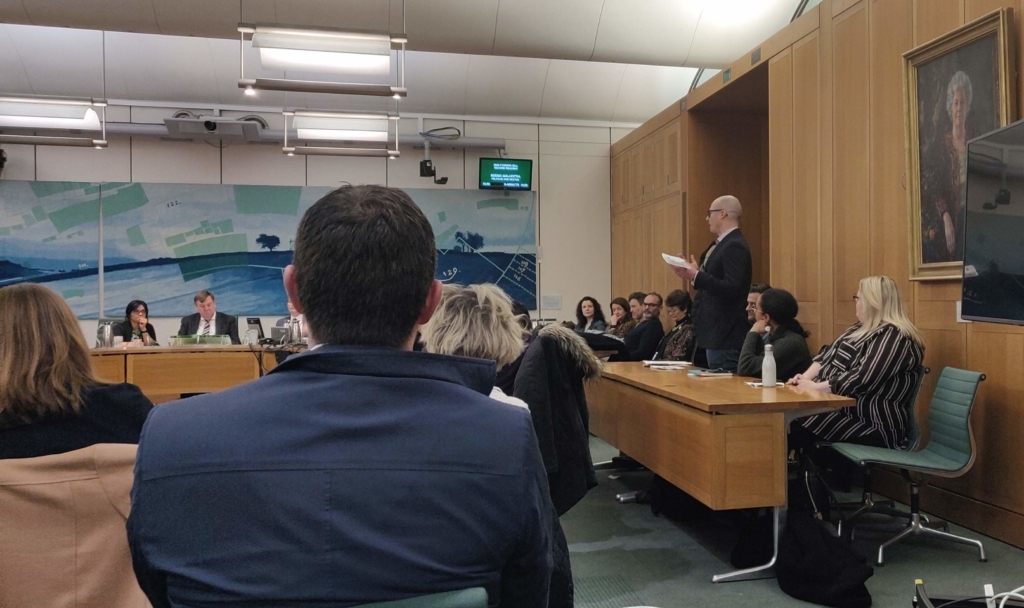IAB Debate Explores If Advertising Is Best Way To Keep Internet Free And Open
A group of Unrulies were invited to Westminster this week to debate the motion that ‘advertising is the best way to keep the internet free and open’.
Speaking for the motion was Ravleen Beeston, from Microsoft, and Anna-Sophie Harling, from NewsGuard, with Matt Rogerson, from the Guardian, and Professor Paul Bernal, from the University of East Anglia, opposing the motion.
The evening was arranged by the IAB, and the audience was encouraged to get involved in the debate, which led to some interesting discussions.
A thought that was repeated throughout the debate was no one has found an alternative as good and fair as advertising to fund the free and open internet.
Some alternative suggestions were discussed, including subscription models, which were quickly dismissed due to only the wealthy being able to afford them and a government-funded model, which was also thrown out down to concerns the government could control the flow of information.
Other suggestions were calling for wealthy donors, like how Jeff Bezos funds the Washington Post, to fund the internet and a crowdfunding model, similar to how Wikipedia operates.
There was also a lot of debate around data and privacy. New legislation that gives control to consumers, like the General Data Protection Regulation (GDPR) and the California Consumer Protection Act (CCPA), was praised, as were bodies that set standards that companies can be audited to, such as JICWEBS and TAG .
Find out what measures we have in place at Unruly to protect your online reputation.
It was clear, however, that people want to see more done to ease public concerns around how their data is collected, stored and shared by advertisers. Although commitments have been made from big tech companies, including Google’s recent pledge to stop third party cookies on Chrome in the coming years, the general feeling was that it’s not happening fast enough, nor is it being communicated appropriately to those who aren’t versed in the practices of digital advertising.

However, the general feeling of the room, despite these concerns, was advertising democratises the web making it accessible to all, not just the wealthy. Some of the other points raised were it funds and makes quality journalism available for the masses and it allows smaller brands to reach vast amounts of potential customers cheaply.
Unruly’s Product Compliance Director, Kelly Jacobson Collins, also raised the point that advertising enables and empowers a range and diversity of voices never seen or heard before in mass media.
A further discussion was held around the notion that digital advertising motivates the ad industry to self-regulate. If the public continues to see ads alongside inappropriate content or fake news they’ll begin to mistrust both the advertisers and brands behind them.
There was a call from NewsGuard’s Anna-Sophie for the ad industry to be more rigorous about where they place advertising, ensuring they prioritise environment and context above other metrics.
Where ads are placed is something we take very seriously at Unruly. It’s one of the reasons we built the UnrulyX marketplace, which leverages impactful first-party data to help advertisers better engage a global audience of 1.2bn people in brand-safe, premium environments. 82% of UnrulyX views are delivered on Comscore 1000 sites, while our marketplace solutions offer exclusive access to some of the world’s leading publishers.
The evening ended with a vote that found the majority in favour of the motion. However, there was a resounding sense that the advertising model cannot carry on operating as it does. And with rising concerns around data and privacy, the ad industry and regulators need to come up with a workable solution to address these concerns.
